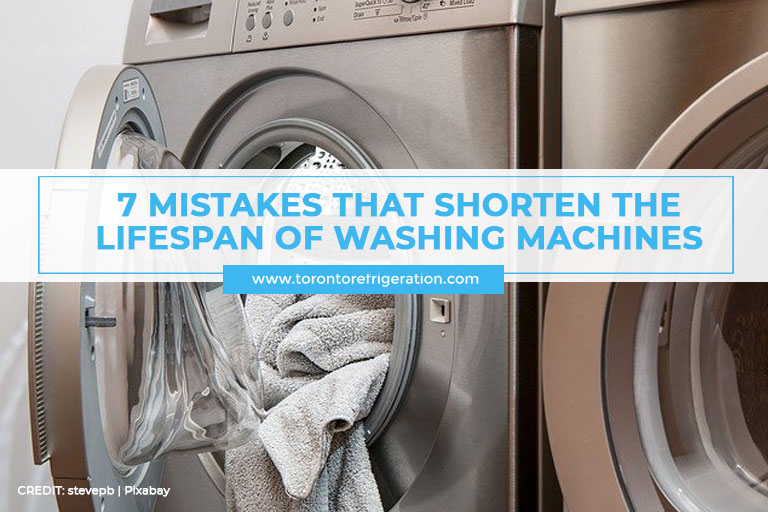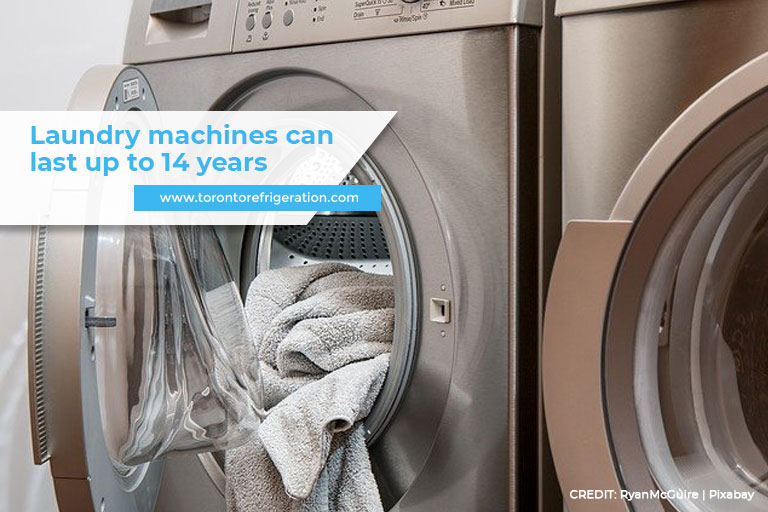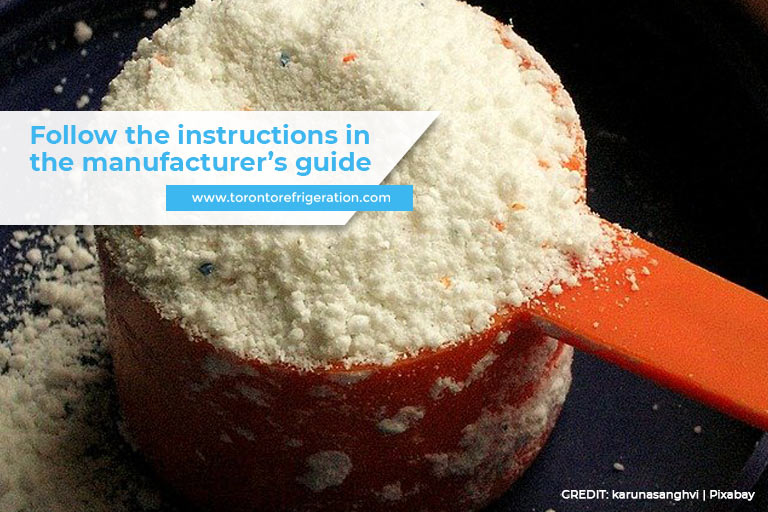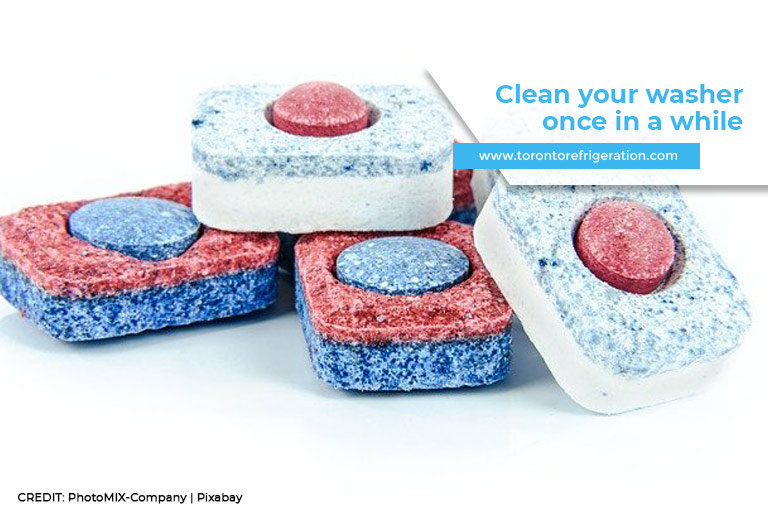Mistakes That Shorten the Lifespan of Washing Machines

Washing machines free many people from the burden of handwashing. Every person living a hectic life can thank the inventor of the washing machine, Jacob Christian Schäffer (1767) for his brilliant mind. The ancient washing machines worked by pouring hot water into the tank, spinning the lever to wash and wringing the clothes between two rollers. Luckily, advanced technology has helped improve the machine and made it more convenient for us. It made the washing machine a time-saving appliance that allows us to attend to other chores or activities. It also saves people from back pain caused by hand washing. A top loader washing machine is the best option for people suffering from back pain.
As much as these appliances ensure convenience, we unconsciously do things that can reduce their lifespan and efficiency. In this post, we will explore the most common mistakes that can result in various washing machine problems, as well as their solutions.
How Many Years Should a Washing Machine Last?
The average life expectancy of a washing machine is about 7 to 14 years. Since washing machines are rated by the number of cycles performed before they break, it can help you determine their lifespan by calculating 7 loads of washing per week or 1 load a day. A washer designed to last 14 years should be able to do approximately 5,100 cycles. However, washers rated at 4,000 cycles may cost less while the cost of high-end machines rated at 8,000 cycles or more can be more expensive. That is why it is crucial to always check the cycle rating before buying a washing machine. It can be worth investing in a pricier washer rated twice as many cycles than cheaper ones since it helps save you more money in the long run.
The way you treat your washing machines can impact their lifespan. Several ways can reduce the washer’s number of years, especially if it is not equipped for heavy usage. Proper maintenance and repair carried out by a reliable appliance technician can help extend the machine’s life.
Ways You Are Damaging Your Washing Machine
You may have been doing laundry for years but still make several small mistakes in the process. While normal wear and tear are normal, these small mistakes, especially when done repeatedly, can shorten the life expectancy of your washing machine at a faster rate.
To ensure the longevity and efficiency of your appliance, make sure to avoid these top X common washing machine mistakes:
- Using Too Much Detergent or Not Using the Right Type of Detergent
The manufacturer recommends a certain amount when using the washer. Make sure to refer to the user’s manual for such information. While it is easy to assume that more detergent can make your clothes extra clean, it can lead to more suds, causing the machine to overflow. However, extra suds that are not rinsed completely does not only leave your clothes dirty but also cause buildup in your machine.
For the same reason, make sure to use the recommended type of detergent. If you have a high-efficiency washing machine, make sure to use detergent bearing the HE system.
- Overloading the Washer
There is a good reason why many laundromats limit how much clothing you can stuff into the washing machine. Even if you have the best washer and dryer combo, overloading the machine can put extra strain on the motor, causing it to wear down over time. Overstuffing the machine prevents the clothes from moving around freely in the sudsy water. Additionally, it reduces the efficiency of the washer as overstuffing would not get your clothes as clean.
- Running Your Washing Machine While You’re Not Home
While the washer is designed to wash clothes from start to finish, leaving them unsupervised may be the worst mistake you can make. Without supervision, the machine can potentially overflow, causing water damage. In rare cases, when some of the components fail or too much friction is created in the drum, it can result in fire. To ensure safety, run and supervise the laundry machine so you can immediately respond to these unlikely events and protect your home from disasters.
- Improper Installation
Laundry washers need proper installation. They need to be installed on a levelled surface to prevent them from tumbling down. The peculiarity of the floor can make the installation more or less complicated. On the other hand, dryers need proper ventilation. You need to choose the proper size and material for the venting tube, as well as the correct tube placement to maximize airflow. For safety purposes, make sure to have a professional install your washer or inspect it if you installed it yourself.
- Not Cleaning the Washer Dispenser
Appliances that clean things, such as your washer, dishwasher, and vacuum, also need to be cleaned to clear out the debris building up in the machine. To clean your laundry washer, pour 2 cups of white vinegar in place of detergent and run it on a hot cycle. You can also add a dissolving tablet on an empty cycle once a month to remove the buildup that could clog.
- Not Cleaning the Dryer’s Lint Catcher
Make sure to remove the debris from your lint catcher after running your dryer. Lint buildup can reduce the efficiency of the machine and slow down the drying process. Also, a dirty lint catcher can be a fire hazard as it can cause the dryer to overheat.
- Keeping the Washer Door Closed
Closing the door immediately after running the machine prevents moisture from evaporating. This makes your laundry machine an ideal breeding ground for bacteria and mould. This causes the machine to give off a funky mildew odour, a common problem in washing machines with a front-load design. If you have young children or curious pets, make sure to check the door before closing.
Should You Repair or Replace Your Washing Machine?
When an old washing machine breaks down, you may wonder if it is worth repairing or if it’s time to buy a new replacement. It can be frustrating when you discover that nothing happens when you press start or hear an unfamiliar noise coming from the washer. Before calling a washing machine repairman near you, here are some tips that can help you make a sound decision.
- Determine the Lifespan of Your Washer
Old washing machine models have a shorter lifespan due to their subpar design. If the washer is 8 years or older and frequently needs repair, then you might want to consider replacing it. The cost to replace washing machine bearings might be more costly than buying a new one.
- Know the Problem
Figuring out the problem can let you know if the machine is still worth repairing. If you are lucky, the problem would be simple and inexpensive to fix. Some of the most common problems include:
- Washing machine hose leaks
- Draining problems
- Water filling issues
- No power
- Weird noises
If the problem is complex or difficult to pinpoint, ask a local appliance repairman for a diagnosis.
- Follow the 50% Rule
When it comes to repairing or replacing an appliance, consider the 50% rule — the cost of repair should not go beyond 50% of the cost of replacing the machine.
- Know the Washing Machine Brands to Avoid
Not all washing machines are created equal. Foraging the Internet for the best laundry washer can help you make an informed decision. As a smart consumer, you want to purchase a washing machine that will last for many years, with little or no maintenance.
Toronto Refrigeration provides professional repair services to help clients across the GTA get the most use out of their household appliances. Our licensed and certified Toronto appliance repair service providers are at your service 24/7. Call us today at 416-918-2700 to book an appointment, or fill in our contact form to let us know your repair needs.




